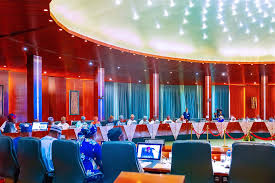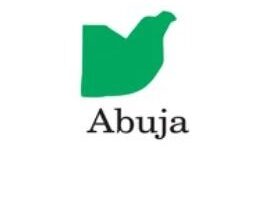Center decries corruption allegations against Nigerian lawmakers, demands probe

The Center for Fiscal Transparency and Public Integrity (CFTPI) is alarmed by corruption allegations involving members of the National Assembly, particularly the claims that some legislators demanded bribes from Vice-Chancellors of universities in exchange for budget approvals.
“These allegations, if proven true, represent a gross abuse of power, a betrayal of public trust, and a blatant violation of the oversight functions enshrined in the Nigerian Constitution,” according to a statement by Victor Agi, Head, Public Relations at CFTPI.
The Center condemns the alleged practices in the strongest terms, saying such actions, which are not only unethical but also inimical to national development, undermine the integrity of public institutions, perpetuate systemic corruption, and deprive Nigerians of quality education and infrastructure.
“We call for an immediate, independent, and transparent investigation into the serious allegations to ensure that those found culpable are held accountable. The National Assembly, as the people’s representatives, is constitutionally mandated to perform supervision that guarantees fiscal discipline and accountability.
“When office holders exploit responsibilities for personal gain, they betray public trust and erode the foundation of democracy and governance. This latest development reflects a recurring pattern of abuse of power, as seen in previous scandals involving federal lawmakers. A history of legislative corruption further illustrates this trend,” said Agi.
The CFTPI spokesperson recalled when the former Chairman, House Committee on Appropriation, Abdulmumin Jibrin, in 2016, exposed how the House of Representatives leadership allegedly padded the national budget with over ₦250 billion worth of projects, and said Jibrin’s suspension, instead of an investigation, illustrated the entrenched resistance to transparency.
“Reports of legislators requesting bribes from heads of Ministries, Departments, and Agencies (MDAs) in exchange for favorable evaluations or budget approvals are rampant. This corrupt practice weakens governance institutions and compromises service delivery to Nigerians. Some lawmakers have manipulated the budget and inserted projects awarded to associates or shell companies, ignoring essential infrastructure.
“Constituency projects have been characterized by inflated costs, substandard execution, or non-execution; misappropriation has robbed citizens of the benefits meant for their communities. Despite the efforts of the Independent Corrupt Practices and Other Related Offences Commission (ICPC) through its Constituency and Executive Project Tracking initiatives, frivolous constituency projects are found in budgets.
“Furthermore, the National Assembly’s use of probe panels to investigate corruption has itself become a conduit for further corrupt practices. Over the years, a litany of grand corruption-related probes has been set up since 1999, only for most to be abandoned for unjustified reasons, raising questions about the true intentions behind such inquiries.
“Inquiries often become avenues for political bargaining, cover-ups, or selective justice. The Center’s Probes Monitor portal provides comprehensive documentation of abandoned investigations, underscoring the urgent need for a functional and independent legislative oversight mechanism that prioritizes genuine accountability over vested interests,” CFTPI adds.
The organization demands urgent reforms, including independent investigations and prosecutions by relevant anti-corruption agencies. “Strengthening institutional oversight is critical, and the executive, the judiciary, civil society groups and the media must play a more active role in ensuring that the National Assembly operates with transparency and integrity.”
Stressing that the legislature is not above the law and must be held to the highest standards of accountability, the Center, led by Dr. Umar Yakubu, calls for the resubmission of the Whistleblower Protection Bill and encourages Nigerians to rise against legislative corruption by continually pushing for accountability from their representatives.
“Past attempts to expose corruption in the National Assembly have been met with intimidation and victimization. Therefore, whistleblowers must be protected and incentivized to expose corruption without fear of retaliation. Constituents should monitor the activities of lawmakers, engage in public discourse, and reject leaders who abuse their positions,” the statement adds.






